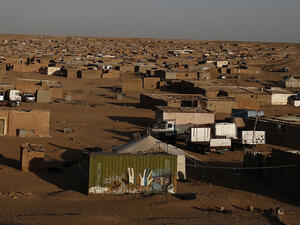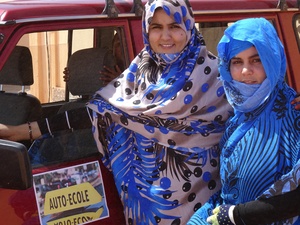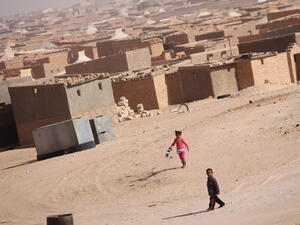Western Sahara: UNHCR's confidence-building proposals to be discussed
Western Sahara: UNHCR's confidence-building proposals to be discussed
A high-level UN mission led by Special Representative of the Secretary-General Alvaro de Soto and including senior UN refugee agency staff is leaving today to meet with officials in Algeria and Morocco to discuss UNHCR's proposals to establish a series of confidence-building measures to help re-establish person-to-person contacts between Western Saharan refugees living in desert camps in western Algeria and their relatives back in the territory of Western Sahara. This week's planned talks follow very encouraging meetings on the issue that took place last week in Geneva involving Mr. de Soto, UNHCR and Polisario officials.
Under the confidence-building measures initiative, first proposed in 2000, we want to establish telephone and personal mail services between the refugees and their relatives in Western Sahara. We also want to organise family visits so refugees and their relatives can finally resume contacts and travel back and forth on a limited basis using UN aircraft.
After last week's positive discussions with Saharan officials, we hope this week's meetings will allow us to finally set firm dates to begin both the phone and mail services. We would also like to see the proposed family visits begin as soon as possible. We believe that the implementation of the confidence building measures will help restore links between the long-divided Saharan community.
An estimated 165,000 Western Saharan refugees have spent the last 28 years in five camps located around Tindouf, in western Algeria's vast desert. These people have virtually no direct contact with relatives who remained in Western Sahara. Life for the refugees, historically nomads but now mostly confined to camps and dependent upon humanitarian aid, is very difficult. UNHCR and its partners provide water, health care, education, food aid, and other basic services in the camps. Funding and assistance levels are frequently barely sufficient for these long-exiled refugees.







